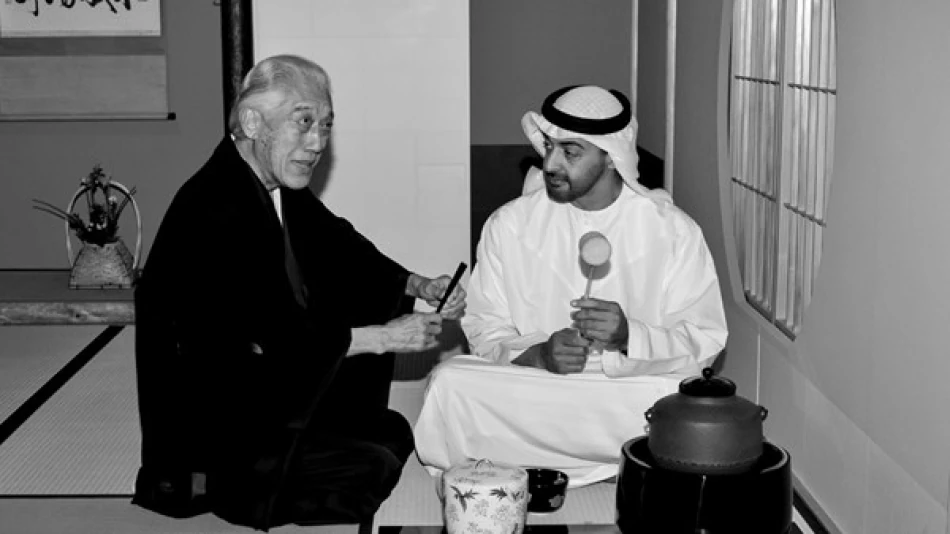
State Leader Extends Condolences Following the Passing of Dr. Genghis Sen
UAE President Honors Japanese Tea Master Who Bridged Two Cultures Through Ancient Traditions
The death of Dr. Genshitsu Sen, Japan's revered tea ceremony master, has prompted a rare personal tribute from UAE President Sheikh Mohammed bin Zayed Al Nahyan, highlighting how cultural diplomacy through traditional arts has quietly strengthened ties between the Gulf nation and Japan over decades.
A Master's Legacy Beyond Borders
Sheikh Mohammed's condolences, shared on his official X platform account, described Dr. Sen as "a symbol of understanding between civilizations and cultures" who served as "a model for taking pride in heritage and preserving it for future generations through his traditional Japanese tea preparation rituals."
The UAE leader's personal acknowledgment reflects more than diplomatic courtesy—it underscores how Dr. Sen's work transcended the ceremonial aspects of tea preparation to become a bridge between vastly different societies. His efforts to introduce Emirati people to "ancient Japanese traditions" represent a form of soft power that has proven remarkably effective in an era of increasing cultural exchange.
Cultural Diplomacy in the Modern Gulf
The tribute reveals the UAE's sophisticated approach to international relations, where cultural understanding often precedes economic partnerships. Unlike traditional diplomatic channels, figures like Dr. Sen operated in spaces where business leaders, artists, and government officials could interact informally while participating in centuries-old rituals.
This approach mirrors successful cultural diplomacy programs in Singapore and South Korea, where traditional arts serve as entry points for deeper economic and political cooperation. The UAE's recognition of Dr. Sen's contributions suggests the Emirates views cultural exchange as a strategic investment rather than mere ceremony.
Japan-UAE Relations Through Tradition
The relationship between Japan and the UAE has evolved far beyond energy partnerships, with cultural initiatives playing an increasingly important role. Dr. Sen's tea ceremonies likely provided neutral ground where Emirati and Japanese business leaders could build trust away from formal negotiation tables—a practice that has proven valuable in East Asian business culture.
For investors and trade watchers, such cultural foundations often signal deeper, more resilient economic partnerships. Countries that invest in cultural understanding typically develop more stable long-term trade relationships, as seen in Japan's successful economic partnerships across Southeast Asia.
The Quiet Power of Traditional Arts
Dr. Sen's influence exemplifies how traditional practices can serve modern diplomatic purposes. His tea ceremonies weren't merely cultural performances but structured experiences that taught patience, respect, and attention to detail—values that translate directly into successful international business relationships.
The fact that the UAE's president personally acknowledged these contributions suggests the Emirates recognizes soft power as equally important to its hard economic assets. This understanding positions the UAE as a cultural hub, not just a business center, potentially attracting more diverse international partnerships beyond its traditional focus on trade and finance.
Most Viewed News

 Layla Al Mansoori
Layla Al Mansoori






